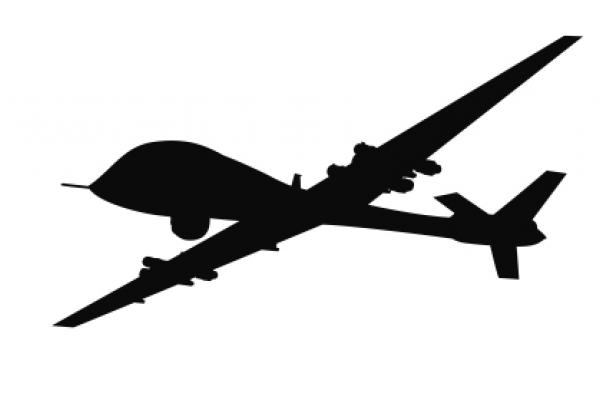Since June 18, 2004, the first day U.S. drones killed people in what has been called the U.S. “global war on terror,” people of faith have questioned whether the use of lethal drones is justifiable.
Since then, the CIA has conducted an estimated 400 or more drone strikes in Pakistan, Yemen and Somalia. Drone strikes are continuing in Syria and Iraq. Hundreds of civilians have been killed, according to the Bureau of Investigative Journalism, including women and children.
These “targeted” killings are conducted remotely in countries against which we have not declared war. Lethal drone strikes occur without warning, target for death specific individuals who are secretly selected, and are operated remotely by individuals thousands of miles away.
The U.S. religious community questions the morality of such drone warfare.
Many people of faith who are not pacifists adhere to the “Just War” tradition as enshrined in international law, which assumes that war is always an evil, but that sometimes there is a greater evil that requires military force.
The criteria for that “sometimes” include: that the war be waged by a legitimate authority; that it is clear who is a civilian and who is a combatant; that civilians should always be immune from direct attack; that there be a reasonable probability of success; that the use of force be proportional to the goals of the conflict; that military force be used only in the face of imminent danger; and that war should always be a last resort.
Applying these criteria to the use of drones raises a number of disturbing questions.
What kind of authority from Congress does the Administration have to use lethal drones? Does this authority extend to targeted killings outside active war zones? Is it clear what the geographical zone of this war is? Should lethal drones be implemented by the CIA, as they are now, given that the CIA is by its very nature secretive?
Are lethal drones sufficiently capable of distinguishing between civilians and combatants? Why is the rate of civilian casualties so alarmingly high? Do drones cause more civilian casualties than traditional military methods?
What are the current and long-term goals of the use of lethal drones? Are drones likely to accomplish these goals or does their use create more hostility and serve as a recruiting tool for terrorist extremists? As other nations acquire the capacity for drone warfare, does that change the likelihood of accomplishing these goals?
Is the damage caused by drones to human life and property really proportional to the goals sought? Is the possibility of an attack on U.S. personnel sufficiently imminent to justify the use of drones?
Is the use of drones a last resort — have other options such as financial restraints, cooperative law enforcement, encouraging people to not join extremist groups, economic incentives, and mobilizing public opinion been fully exhausted? War should always be a last resort, but drones make it easier to rush into war. For the time being, the use of drones has very few up-front risks for the nations that use them. They are controlled several thousand miles from the battlefield and do not require any use of ground troops.
The use of lethal drones, therefore, raises questions of conscience for the religious community. People of faith including myself have a responsibility to shine a bright light on this doubtful means of conducting war. We are among those who must raise the questions, and we are doing just that by organizing the first ever Interfaith Conference on Drone Warfare, which will be held Jan. 23-25 at Princeton Theological Seminary. People from a wide range of religious backgrounds — including myself — will address these questions, and much more. All people of faith are invited to register for the conference.
The goal of beginning this conversation in the religious community is to study the use of lethal drones and then make policy recommendations to the U.S. government. We will call on religious communities to advocate that these policy recommendations become reality.
Rev. George Hunsinger is Professor of Systematic Theology at Princeton Theological Seminary. Via RNS.
Got something to say about what you're reading? We value your feedback!
